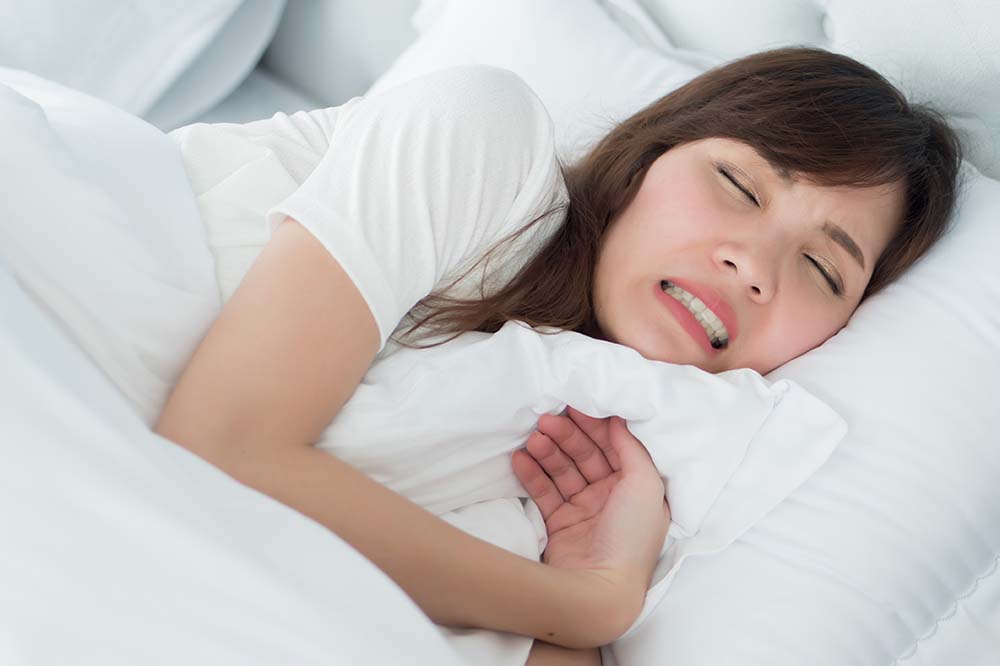BRUXISM
Teeth grinding and jaw clenching (also called bruxism) is a condition in which someone clenches or grinds their teeth. It may happen unconsciously during the day or at night while sleeping and is often related to stress or anxiety. It does not always cause symptoms, but some people get facial pain and headaches, and it can wear down your teeth over time. Most people who grind their teeth and clench their jaw are not aware they’re doing it.
In some people, bruxism can be frequent and severe enough to lead to jaw disorders, headaches, damaged teeth or gums and other problems.
Because you may have sleep bruxism and be unaware of it until complications develop, it’s important to know the signs and symptoms of bruxism and to seek regular dental care.
Signs and symptoms of bruxism may include:
•Teeth grinding or clenching, which may be loud enough to wake up your sleep partner
•Teeth that are flattened, fractured, chipped or loose
•Worn tooth enamel, exposing deeper layers of your tooth
•Increased tooth pain or sensitivity
•Tired or tight jaw muscles, or a locked jaw that won’t open or close completely
•Jaw, neck or face pain or soreness
•Damage from chewing on the inside of your cheek
•Pain that feels like an earache
•Dull headache starting in the temples
•Sleep disruption
It’s important to see a dentist if you have any of the symptoms listed above or have other concerns about your teeth or jaw.
If you notice that your child is grinding his or her teeth — or has other signs or symptoms of bruxism — be sure to mention it at your child’s next dental appointment.
NIGHTGUARDS
Bruxism, or teeth grinding and clenching, causes unusual wear and stress on your teeth. If allowed to continue, tooth grinding can file down your tooth enamel to expose soft dentin, or can lead to chips and cracks in your teeth. To protect your teeth, and to relieve the soreness and headaches associated with bruxism, we offer custom night guards to prevent teeth grinding during sleep.

